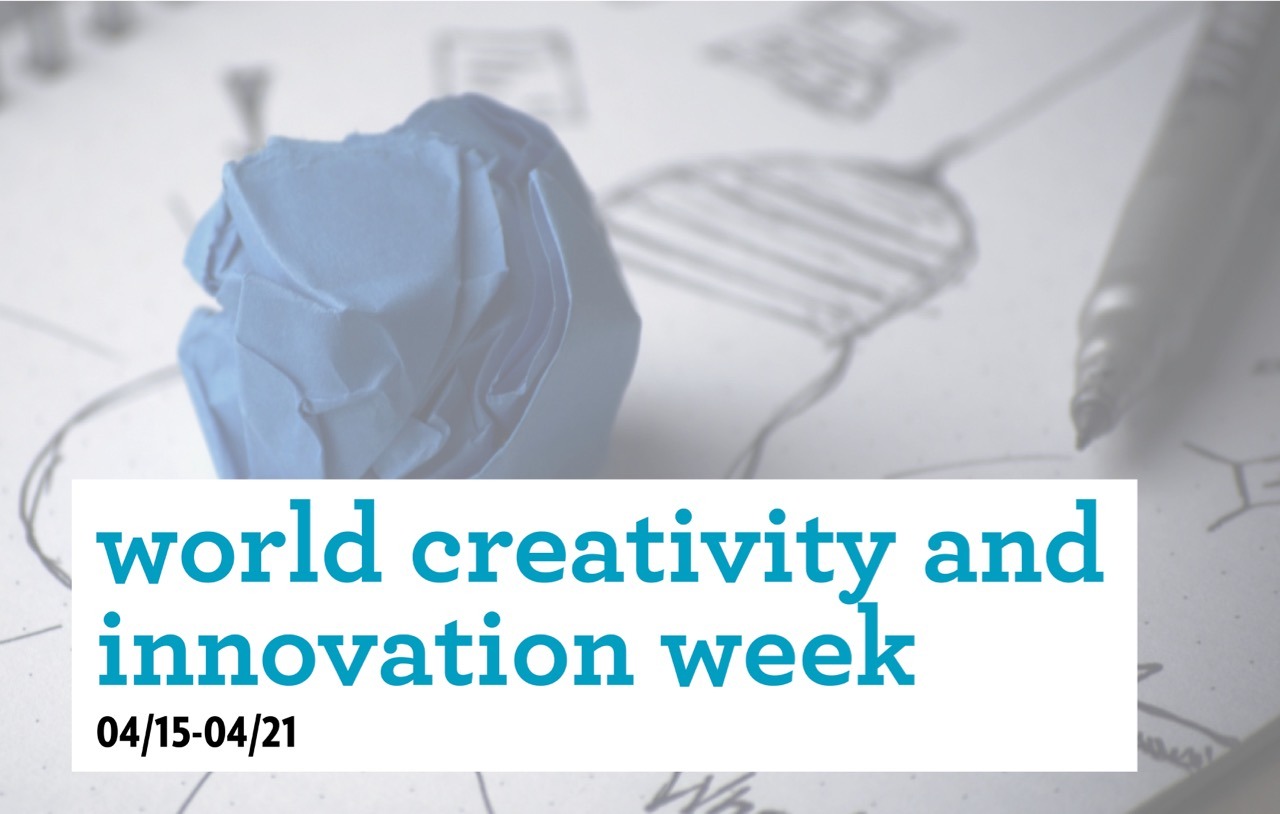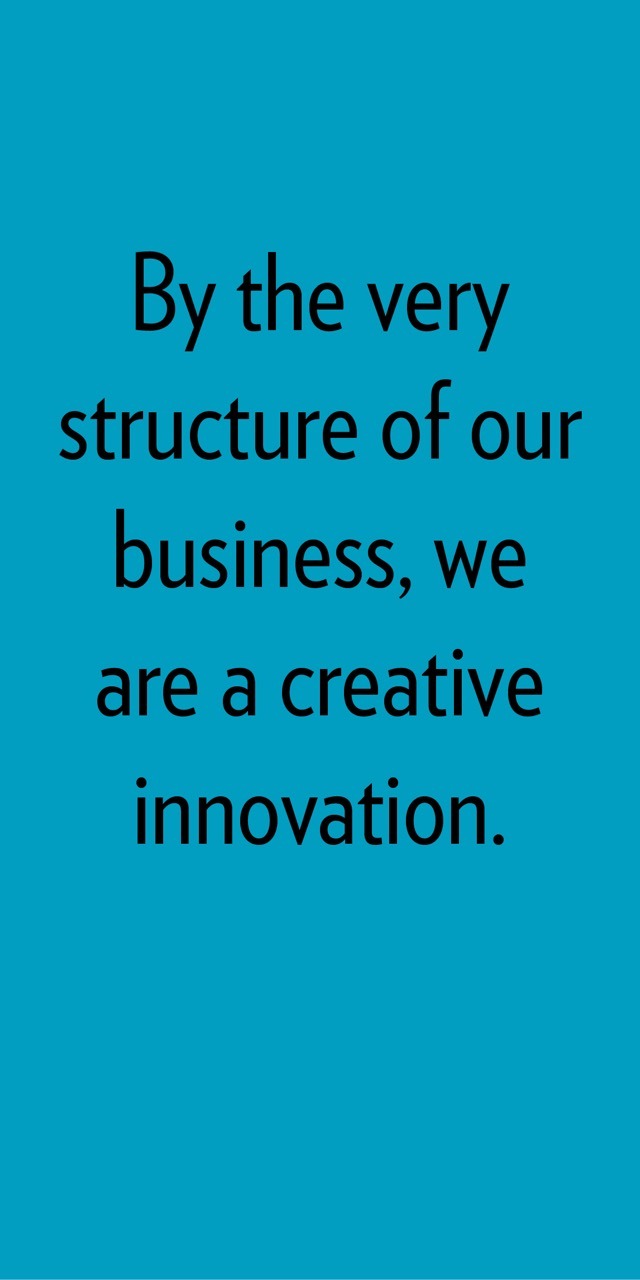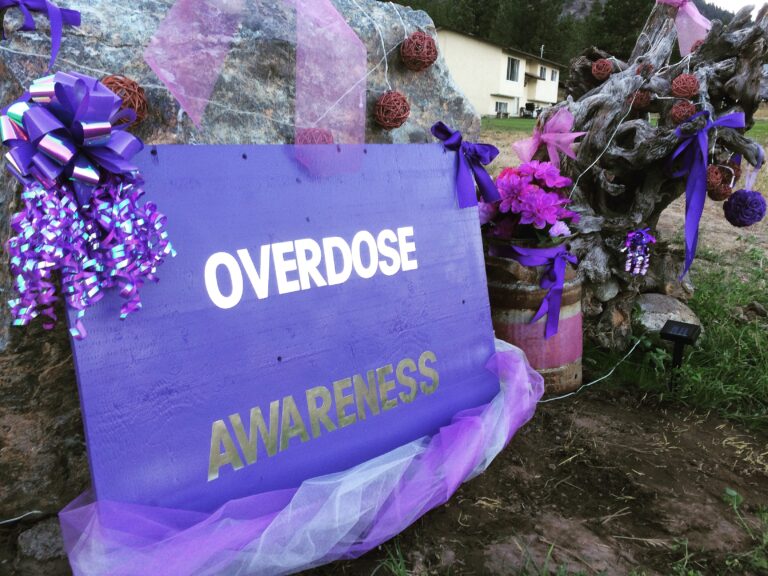
17 April 2019
Innovation Matters
This week is World Creativity and Innovation Week (WCIW). Conceived of by Canadian Creativity consultant, Marci Segal and adopted by the United Nations in 2001, WCIW is a week to celebrate, as Segal describes, “the fact that we can make a difference and have many abilities that allow us to generate new ideas, make new decisions, take new actions, and achieve new outcomes to make the world a better place and our place in the world better too.”
Segal has built her career on encouraging people to value creativity. Every year, as WCIW rolls around, she and others give the creativity and innovation message an extra push: they invite people from across the globe to celebrate their creativity and their willingness to innovate.
This year, we are taking Segal up on her invitation.
Complex Creativity
WCIW is the kind of celebration we embrace at Urban Matters CCC. Much of the work we do on a daily basis involves thinking through complex, messy challenges in creative ways. We do this by convening, consulting, and creating with communities and social entrepreneurs who are transforming traditional ways of problem solving in communities and in the social sectors.
In addition to the day-to-day work we do with communities and entrepreneurs, we are a bit of an experiment ourselves: by the very structure of our business, we are a creative innovation.
In fact, our company was founded on Segal’s idea that we can take new actions to achieve new outcomes.
An Invitation to Innovate
Six years ago, Urban Matters CCC’s President Ken Gauthier was working as a senior consultant at Urban Systems Ltd. Through his work with communities across Western Canada, Gauthier was seeing an ever-increasing need to support communities with the complex social challenges they were facing – the type of challenges that cannot be solved with infrastructure alone.
An engineer by trade and a creative problem solver at heart, Gauthier started thinking about potential opportunities to work with communities on these challenges. He knew from experience that responses to social challenges require a commitment to working with communities to co-create solutions and that sometimes that process takes a few tries. He was also seeing the need to dive into problems using different methods and to experiment with research and development, or R&D.
“The community and socials sectors are complex. They require being able to work with communities to understand needs and test possible solutions. The non-profit sector, being primarily grant dependent, cannot always afford to do R&D and the traditional business sector doesn’t necessarily want to take those risks.”
At that point in time (around 2012), words like co-creation, incubation, social lab, social innovation hub, and social enterprise were just starting to build momentum in British Columbia but hadn’t quite hit the mainstream. Gauthier was imagining how some of these concepts and methods might play out in the kind of work he’d been doing with Urban Systems for two decades.
Because Urban Systems had been developing strong relationships and an excellent reputation across Western Canada for forty-five years, Gauthier had a solid foundation to build from. Not only did he have a clear sense of the communities’ needs, he had contributed to building strong local networks. The combination of his experience with the support of Urban Systems would become key in allowing the Urban Matters CCC team to start testing innovative approaches to complex issues.
Creativity Meets Serendipity
In terms of exploring how things might be done differently, the timing could not have been better. Around the same time Gauthier was imagining how to move some of these ideas forward, the BC Social Innovation Council had been working with the Provincial Government to create a specific incorporation model for hybrid enterprises. By 2012, the Community Contribution Company (CCC or C3 for short) was born. The CCC designation meant that social enterprises could adopt a unique incorporation model that would allow their mission to be embedded in their organizational DNA. By law, CCCs must invest 60% of their profits into social causes.
In 2014, Urban Matters CCC emerged as one of British Columbia’s first incorporated Community Contribution Companies. With a newly formed social enterprise that was well situated to tackle some of the complex social challenges facing communities throughout Western Canada, it was time to get creative.
Shifting the Status Quo
Fast forward to now: we are a growing team that is working with communities on issues of affordable housing, challenges related to the opioid crisis, strategies for building healthier communities, among a host of other issues. Our team convenes across sectors, facilitates tough conversations, and continues to build its practice in social and community sectors, particularly across the social determinants of community health.
While community and social issues have traditionally fallen within the domains of the government and/or the non-profit sector, Urban Matters, as a CCC, is placed in a unique position to work on exactly these issues in a unique way and this means we’re often exploring uncharted territory. Operating as a business with the heart of a community organization means there can be pushback from the business side and the social sector side. Gauthier explains this complex, ever-shifting dynamic:
“As a C3, we don’t quite fit into the non-profit or charity space, but we don’t fit quite fit into the private sector space either. We’ve realized that we’re carving out a new space as we go and part of our role is to help clarify what all of this means, even if we’re still figuring it out sometimes.”
As one of only a few hundred C3s in the province, Urban Matters CCC is happy to work creatively in a milieu that is still defining itself. What’s most exciting for Gauthier about working in this ever evolving space is the opportunity to shift the status quo:
“In the work that we do, we get to define and redefine what collaboration across sectors can look like, what social venture investment with communities can look like, and how we might begin to solve our biggest and most complicated problems in radically different ways.”
Reflecting more on what being an innovative business model means in the day-to-day, Gauthier explains, “every time we are asked why we’re doing things the way we’re doing, we have the chance to invite people to imagine different ways forward and, for me, this is the heart of creativity and innovation.” This is exactly the sentiment our team will be celebrating during World Creativity and Innovation Week.




